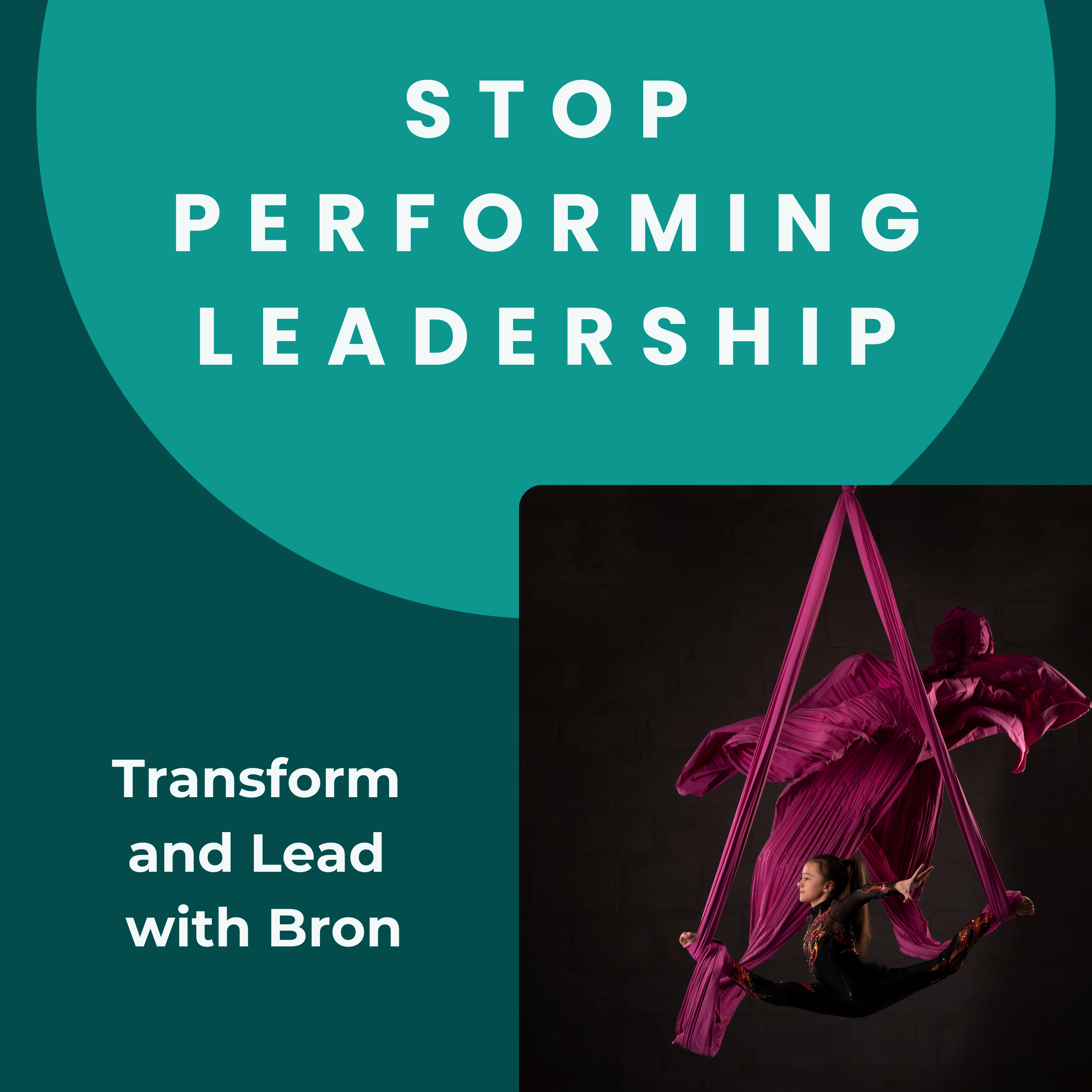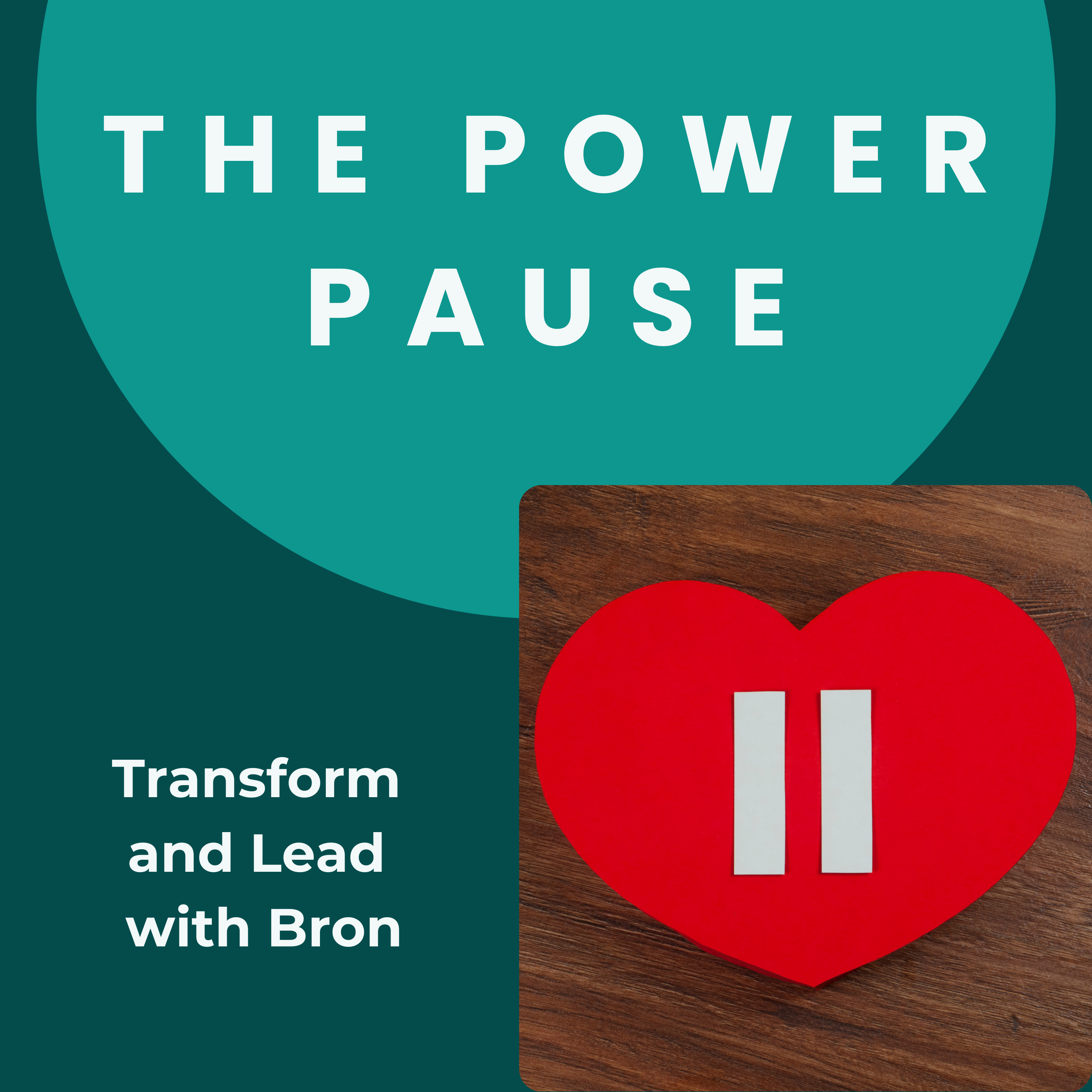Episode Transcript
[00:00:04] Welcome to Transform and Lead. I'm Bron Stephens, ex CEO turned executive coach who's all about women uplifting women. I know what it's like to question whether your way of leading is enough. You've worked hard, you're ambitious, and you want to do big things without having to fit into someone else's mold. This podcast is here to give you practical, powerful ways to own your ambition, femininity and power so you can lead with confidence your way. Let's get into it.
[00:00:30] Today we're talking about leadership superpowers. What they are, why they matter, and how you can turn yours into a powerful asset in your career. Here's the reality. Women are often given the wrong leadership feedback. Instead of being encouraged to refine our strengths, we're told to tone them down. And that can be the difference between thriving as a leader or feeling like you're constantly being asked to change who you are. By the end of this episode, you'll know exactly how to take your strengths, recognise their shadow sides and refine them into leadership superpowers. Let's get started.
[00:01:06] To understand why we're getting the wrong feedback, we first need to talk about what's known as the broken rung. Research from McKinsey and Lee Newton shows that while women and men start out in corporate roles at nearly equal rates, by the time women reach senior leadership, they make up just 28% of the senior vice presidents and 29% of the C suite.
[00:01:26] That matters not only from a leadership pipeline perspective, but also because it means our role models and expectations are formed by male leadership and traditionally masculine leadership traits. Why does that matter? Because the majority of those evaluating female leaders, 70% of senior women's leaders are men. And because leadership norms have been traditionally shaped by masculine leadership traits, women who lead with more feminine leadership styles, traits like relating self awareness and authenticity are often judged through a lens that doesn't fully recognize or value these strengths. Not to overcomplicate matters, but let's then throw in the fact that the traits most highly correlated to leadership success are exactly these traits. The reality is that not only do men exhibit these traits less frequently, they exhibit leadership tendencies that tend to undermine these strengths more frequently. Tendencies that fall into the range of controlling, protecting and even complying. So what does that all mean? It means women receive feedback that's often vague and unhelpful. Instead of you need to work on stakeholder alignment for more impact. Women are told you should be more strategic instead of your direct approach is effective, but could be balanced with more relationship Building women are told you come across as abrasive. These aren't helpful or actionable. And this misdirected feedback pushes women to dial down their strengths instead of refining them into superpowers by overcoming the shadow sides of those strengths. So let's fix that today.
[00:02:55] What are leadership superpowers? A leadership superpower is a strength that sets you apart. Something that, when refined, makes you an exceptional leader. But here's the catch. Every strength has a shadow side. Authenticity can be perceived as abrasiveness. Empathy can turn into accommodating behavior. Decisiveness can come across as inflexibility. High standards can be misread as being too demanding. You get the idea of what I'm talking about here. The problem isn't having these strengths. The problem is that women aren't given the right feedback to refine them by overcoming those dark sides or those shadow sides of these strengths. For me, let me tell you about a time when I got terrible leadership advice. I've always been highly result oriented. I take immense pride in driving outcomes and delivering exceptional work. But it was coming at the expense of people. Now, if you know me, you'll know that one of my most deeply held beliefs is that leadership is always people first. I want nothing but the best for my team and every single individual that I work with. At first, the feedback felt really devastating, like I had to choose between being a high performer and being a good leader. To make matters worse, I was told that I was too focused on results and that I needed to be less results driven and expect less from people because it was coming at the detriment of my people. When I heard that, I thought, that is bull and you can add an exploit there. I'm trying to keep it clean.
[00:04:15] My people were capable of achieving amazing things, and they were achieving amazing things. Why wouldn't we want to keep that up? So I dug in with my leaders to really understand what was going on. And what I discovered was that the shadow side of my strength wasn't that I was too results oriented. It was that I wasn't celebrating our great results before moving on to the next big thing. And that was showing up as perfectionism and critical tendencies, both of which are ineffective and damaging traits from a leader. The reality was I was incredibly excited by what we were achieving. I thought my people were doing amazing work and I thought I was sharing this effectively and giving them the big ups. The reality was that I was so excited about what we could achieve next that I wasn't pausing long enough to fully acknowledge and celebrate what we'd already accomplished. That shift and that feedback changed everything for me. I didn't stop being results driven. Instead I started intentionally celebrating wins and making space for recognition. I let my team feel the impact of what they'd achieved and their work before we moved on. And you know what happened? My relationships with the team became even stronger and the results even bigger and better than before. So that feedback about being less results oriented, if I had have taken it, would have left me with bad relationships in the team and results at the expense of people or just less results. And so that's the power of refining your strengths and understanding their shadow sides. Instead of suppressing them, they turn into superpowers.
[00:05:45] Let's talk about strategies to amplify your superpowers and we're going to break this down into three steps that you can take right now to turn your leadership strengths into leadership superpowers. Firstly, identify the shadow side of your strengths. And I said in the last podcast that leaders should do a 360 degree survey like the Leadership Circle to help with this. However, if that's not available, here's some more detail about how to do it on your own. Start by identifying what you think of and get feedback on as being your greatest strength. What's the downside of the strength?
[00:06:19] Think about how others might misinterpret that strength and think about the feedback that you've received that might indicate a shadow side. Once you've done that self reflection, then go and talk to some other people, ask them, what do you see as my three greatest leadership strengths?
[00:06:35] What's the downside of these strengths? What are my greatest weaknesses and how do you think those things relate?
[00:06:44] Doing that will give you a good understanding of their perception. And leadership is measured by the perception of others rather than our own. Once you've done those first two steps, I want you to shift your perspective. You want to take your perspectives and you want to take others perspectives and you want to bring those together to figure out how to not dilute your strengths, but to pair it with another leadership skill and refine it so you know what your strengths are and what you think your strengths are. You know what other people think your strengths are, you know what you think your weaknesses are and what they think they are. Now bring that all together and look at how might you use those strengths to overcome any weaknesses.
[00:07:24] So putting this into practice, if you're authentic but perceived as abrasive, work on balancing directness with warmth. If your results focus but perceived as too intense, make time to celebrate wins before moving forward.
[00:07:37] Use those different ways of bringing things together to enhance the strength that you already have, rather than trying to overcome the weakness that underlies it.
[00:07:49] Next, you want to leverage the bias to your advantage. And the bias I'm talking about here is the workplace bias around gender norms. Yes, the bias exists, but the research shows that women actually outperform men in key leadership skills like initiative, results delivery and people development.
[00:08:06] So instead of fighting the system, use it to your advantage by proactively managing your leadership brand. Take on the fact that you have these leadership strengths and turn them into superpowers to overcome this feedback. Because the feedback coming from a masculine perspective, and it is still a masculine perspective within our workplaces, is always going to be that the masculine leadership traits are right.
[00:08:34] So, wrapping this all up with some actionable takeaways for you. Let's let's put this into practice. For this fortnight, I challenge you to go out and do the three exercises that we've talked about here. Write down your leadership strengths, identify the shadow sides, and choose the actions that you're going to do to refine those strengths without shrinking it and really transform it into that superpower. By refining instead of reducing, you'll turn your strengths into leadership superpowers.
[00:09:06] That's it for today's episode of Transform and Lead. As always, references are in the links, as are my contact details. If you want to know more, and if this resonated for you, I'd love for you to subscribe and leave a review. Even better, if you know another leader who'd benefit from hearing this, share this with them as well. If you want to stay in touch, connect with me on LinkedIn or you can check out my website, bronstevens. Com.
[00:09:28] Otherwise, my friends, keep owning your ambition and I will see you next time.


